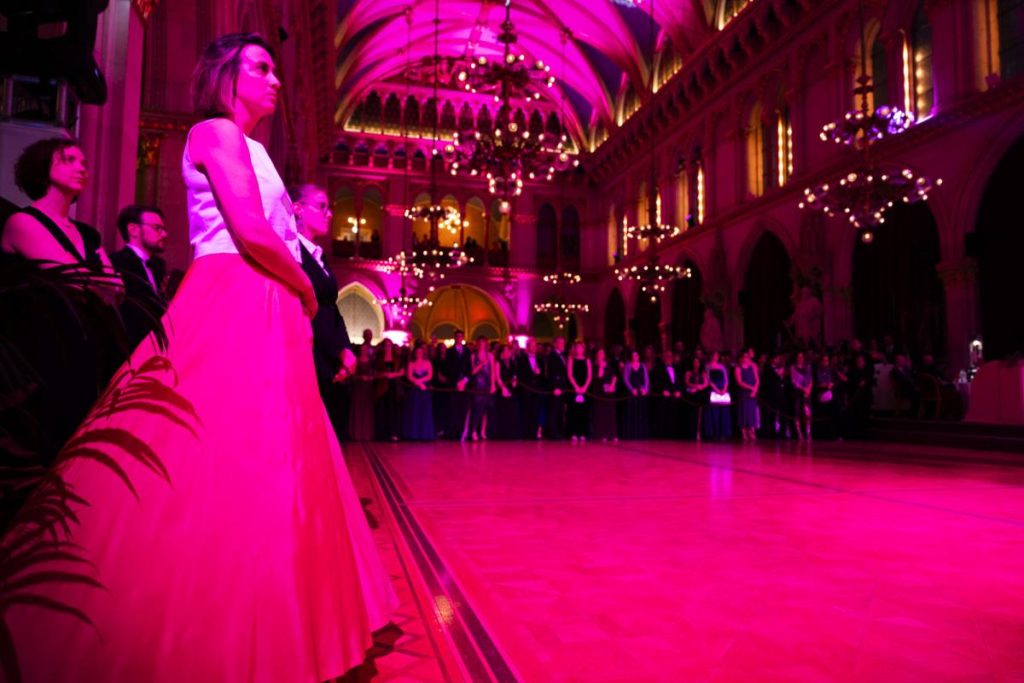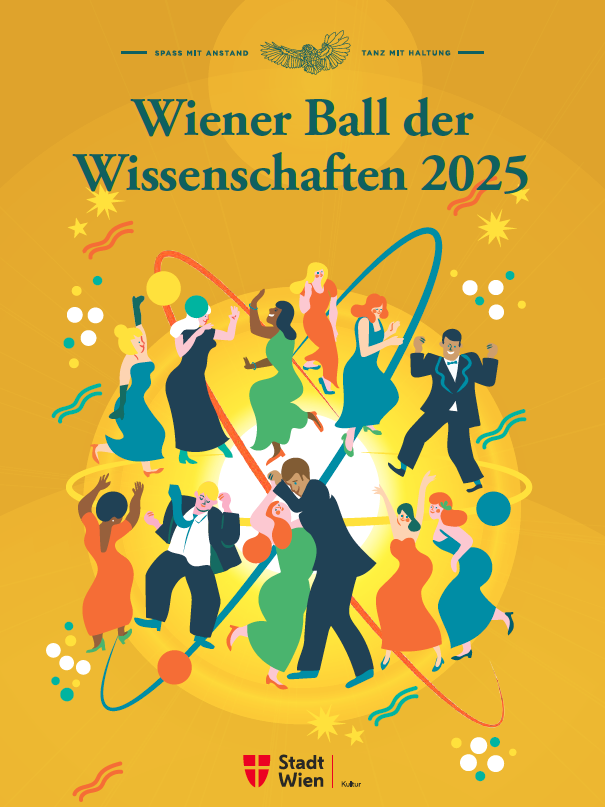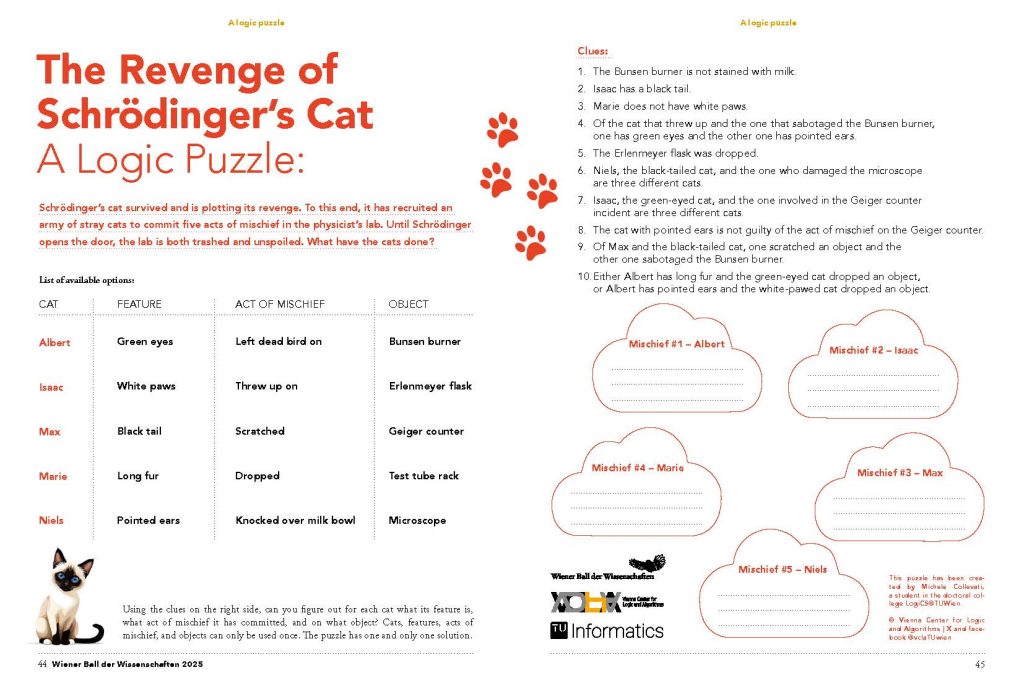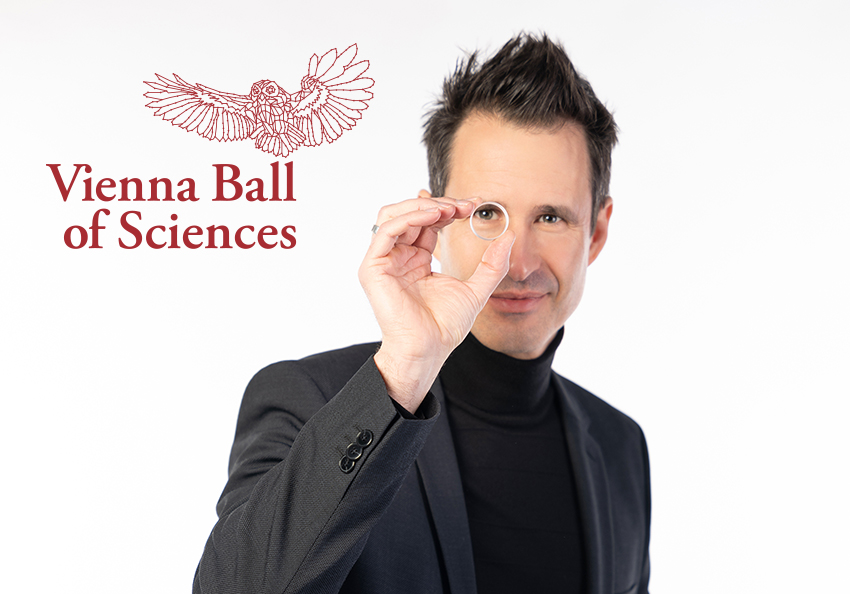The highlights of the Science Ball 2025. With insights into the ball events such as the midnight quadrille and the speech by Federal President Alexander Van der Bellen as well as excerpts from the performances by Katia Ledoux and Donna Savage. Plus interviews with Mayor Michael Ludwig, City Councillor for Science Veronica Kaup-Hasler, political scientist Maja Göpel, molecular biologist Elly Tanaka, upcycle designer Saki, quantum physicists Philipp Haslinger and Markus Aspelmeyer (both quantA), ball organizer Oliver Lehmann and many visibly impressed guests.
All posts by Oliver Lehmann
Red Carpet 2025
Our guests of honor traditionally meet for a drink in the town hall shortly before the official opening of the ball. These include ball ambassadors, whose encouraging and critical messages can be found in the blog of the last few weeks; the representatives of universities, universities of applied sciences, private universities and research institutions who support us with their networks and form the honorary committee; companies, alumni associations and funding institutions who contribute to the financing of the ball with their bookings; public figures who care about science, education and research; and last but not least our guests from abroad. Continue reading Red Carpet 2025
The Ball Photos 2025
Pictures or it didn’t happen. So here they are: the 2025 ball photos! Produced by our photo team, consisting of Ludwig Schedl, Franz Reiterer, Manuel Prett and Christian Haas.
Vienna Lecture with Maja Göpel
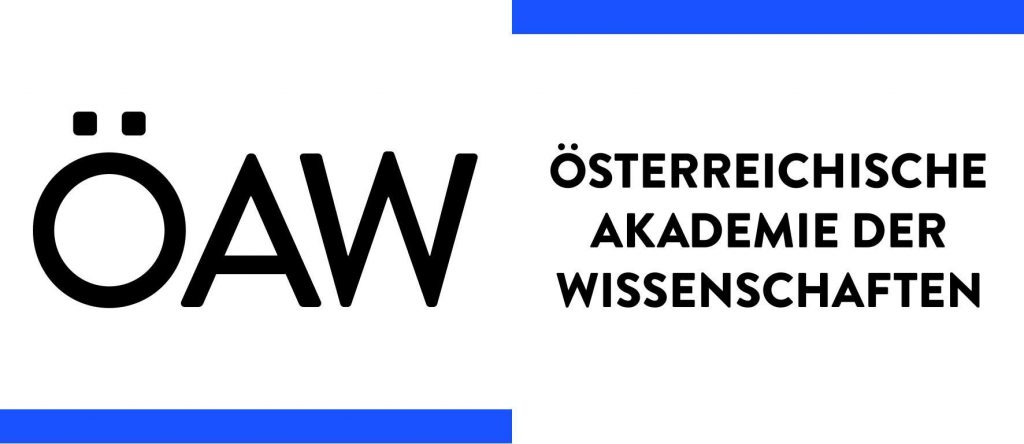 On the eve of the ball, on Friday, 24 January 2025, Maja Göpel gave the Vienna Lecture on Science Communication in the festive hall of the Austrian Academy of Sciences. The introduction and welcome was given by Univ.-Prof. Matthias Karmasin, representing ÖAW President Heinz Fassmann. Göpel’s well-founded and animated appeal for greater involvement of science in public discourse was enthusiastically received by the audience. Continue reading Vienna Lecture with Maja Göpel
On the eve of the ball, on Friday, 24 January 2025, Maja Göpel gave the Vienna Lecture on Science Communication in the festive hall of the Austrian Academy of Sciences. The introduction and welcome was given by Univ.-Prof. Matthias Karmasin, representing ÖAW President Heinz Fassmann. Göpel’s well-founded and animated appeal for greater involvement of science in public discourse was enthusiastically received by the audience. Continue reading Vienna Lecture with Maja Göpel
The Ball Magazine 2025
Ball Message from the President
The Austrian President Alexander Van der Bellen was directly involved in the founding of the Vienna Science Ball. As the University Commissioner of the City of Vienna, he supported the establishment of the event in 2014 together with Mayor Michael Häupl and City Councillor for Science Andreas Maillath-Pokorny. The first ball was held in the City Hall in 2015. Then as now, the motto is: “Fun with decency – dance with attitude”. Here is his ball message (in German) for the 2025 anniversary ball:
The Revenge of Schrödinger’s Cat
The team from the Vienna Center for Logic and Algorithms at the Vienna University of Technology has developed a logic puzzle for the anniversary ball. If you don’t have time to solve the puzzle on the evening of the ball, you can try it here. And here’s the solution!
Thorsten Schumm: Boldly into the new era!
As an experimental physicist, I am conducting research into a new definition of time with the “nuclear clock”. Last year, we succeeded for the first time in exciting a thorium-229 isotope atomic nucleus in a targeted manner using a laser. It is now conceivable that nuclear clocks will replace the atomic clocks currently in use. The new “quantum physics with nuclei” has many other possible applications, from information storage to very high-energy lasers. Continue reading Thorsten Schumm: Boldly into the new era!
Markus Aspelmayer: Sharing fascination and curiosity!
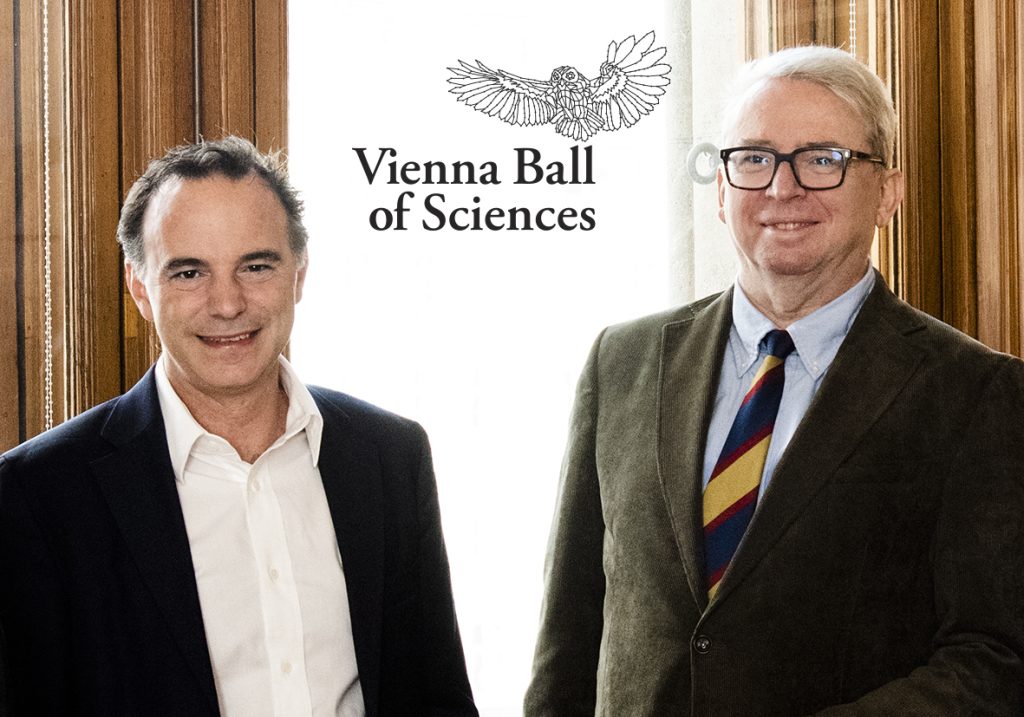
Basic research means expanding the boundaries of our knowledge. My expectation? That the assumptions on which our theories are based do not contradict each other. In other words, our scientific world view should be consistent at its core. This is currently not the case. Continue reading Markus Aspelmayer: Sharing fascination and curiosity!
The venus flytrap snaps shut (again)
A reunion with an old friend that already decorated the tables at the first Science Ball in 2015: the Venus flytrap.
From the outside it looks harmless. Delicate, almost innocent. Like a leaf with braces, an alien smile in green. But beware if someone is careless. Then it clicks. Then it snaps shut. And while you are still amazed, it has already snapped shut – bang, game over. The Venus flytrap, botanically correct Dionaea muscipula, is a plant and a hunter, an ornament and a killer at the same time. And, as luck would have it, this year it is (again) a table decoration at the Vienna Science Ball. Continue reading The venus flytrap snaps shut (again)

